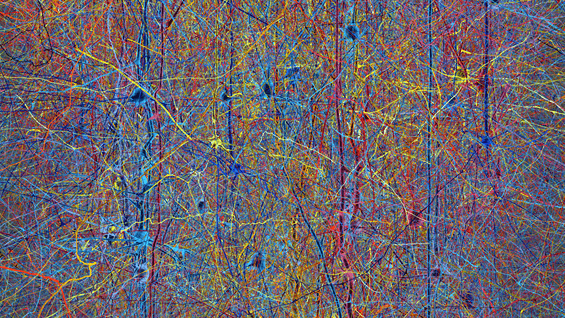Lister Institute Research Prize Fellow Dr Rebecca Lawson of the University of Cambridge recently published a paper that reveals the role of the brain chemical noradrenaline in our response to uncertainty.

The open-access paper, “The Computational, Pharmacological, and Physiological Determinants of Sensory Learning under Uncertainty,” was published in the journal Current Biology in November.
Working with colleagues at University College London, Dr Lawson’s team created a lab-based model to explore how the human brain deals with uncertain, rapidly changing situations.
They did this by testing the effects of Propranolol on how people reacted to sounds and images. This drug – used to treat anxiety and blood pressure – blocks the action of noradrenaline.
The researchers found that in more stable situations, we tend to use our previous experiences to plan for the future. But in more volatile times – such as the current COVID-19 pandemic – our brain can let go of these expectations and make room for rapid learning instead.
“We found that a brain chemical called noradrenaline plays a role in our inability to predict the future when the state of the world is volatile,” explained Dr Lawson in an article about the research on the University of Cambridge’s website.
This research may help explain why people with conditions such as anxiety and autism find it difficult to balance expectations against new information. The next step is to try and understand how people with these conditions learn under uncertainty.
Dr Rebecca Lawson is a lecturer and researcher in the Department of Experimental Psychology at the University of Cambridge. She was awarded the Lister Institute Research Prize in 2020. She is a Senior Affiliated Scientist at the MRC Cognition and Brain Sciences Unit. She is also Royal Society Wellcome Trust Henry Dale Fellow, Autistica Future Research Leader, and Principal Investigator of the PaL Lab.
Her research seeks to establish the origins of neuropsychiatric and neurodevelopmental disorders, in the hope of supporting earlier diagnosis and access to treatment. The Lawson Lab uses mathematical models to capture individual differences in the neural computations that drive symptoms.
You can find out more about Dr Lawson and her work on the Lawson Lab homepage.



